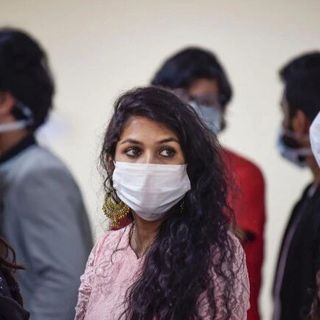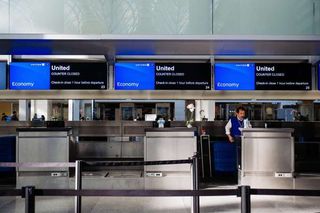
Travel Bans Don’t Eliminate the Risk of a Disease: Study
Travel restrictions also delay help for the affected community and result in economic losses.

“Do not travel to China due to the novel coronavirus first identified in Wuhan, China,” states the U.S. Department of State website. The advisory was issued in light of the fast-spreading and deadly outbreak in late December.
Now known as COVID-19, the disease has infected more than 89,000 and killed more than 3,000 people per the latest reports. It has spread to more than 30 countries beyond China. Therefore, along with the U.S., more than 70 countries have imposed travel restrictions to and from China.
However, a study by the University of Washington (UW) and Johns Hopkins University in the U.S. has found these travel bans may not be effective.
“Some of the evidence suggests that a travel ban may delay the arrival of an infectious disease in a country by days or weeks. However, there is very little evidence to suggest that a travel ban eliminates the risk of the disease crossing borders in the long term,” Nicole Errett, a lecturer in the UW Department of Environmental & Occupational Health Sciences in the School of Public Health, said in a press release.
Travel restrictions, as well as airport screenings, may delay pathogens from moving, but they don’t affect the number of people who ultimately get sick. Take, for instance, the travel bans imposed after the outbreak of swine flu. In 2009, when H1N1 first broke out, a study noted, travel bans, “only led to an average delay in the arrival of the infection in other countries (i.e. the first imported case) of less than three days.” The study continued, “No containment was achieved by such restrictions and the virus was able to reach pandemic proportions in a short time.”
The researchers of the current study reached the above conclusion after studying data on travel bans imposed in response to recent outbreaks of Ebola virus, SARS, MERS, and the Zika virus. In 2003, for example, after the SARS outbreak, Canada was among the worst-hit countries, with the virus affecting hundreds and killing at least 44 people. One step to curb it, the government thought, was to conduct airport screenings of passengers through thermal scanners and prevent those who showed symptoms from traveling. According to data from the Canadian government, nearly 25,000 residents in Toronto were quarantined and millions underwent screening at the airport — yet the “effort was a waste of money and human resources; it didn’t pick up a single case of the disease,” the report stated. “In other countries, the yields for airport screening measures were similarly low.”
In addition, “travel restrictions can cause more harm than good by hindering info-sharing, medical supply chains and harming economies,” the World Health Organization director-general, Tedros Adhanom Ghebreyesus, told Vox. Put simply, travel bans only make it difficult for aid to reach people affected by a disease and cause losses for the affected economy, Vox’s Julia Belluz and Steven Hoffman concluded.
Related on The Swaddle:
How Likely Are You to Get Coronavirus? Very.
Per a Foreign Policy report, initial estimates say that U.S. travel restrictions against China will cost the U.S. economy US$10.3 billion. “They also have more insidious downsides: incentivizing countries to conceal outbreaks, hindering response efforts, infringing on human rights, and fueling the spread of xenophobia,” global health policy expert Maria Pillinger concluded.
“When assessing the need for, and validity of, a travel ban, given the limited evidence, it’s important to ask if it is the least restrictive measure that still protects the public’s health, and even if it is, we should be asking that question repeatedly, and often,” study co-author Lauren Sauer, an assistant professor of emergency medicine at Johns Hopkins University’s School of Medicine and director of operations with the university’s Office of Critical Event Preparedness and Response, said in the press release.
As of now, travel restrictions remain “political theater, not good public health policy,” write Belluz and Hoffman for Vox. They stress on the importance of educating travelers about the disease rather than imposing travel bans, and of course, on helping China respond to the outbreak. “We know this for sure: The longer this virus spreads there, the more people get the disease, and the greater chance it has of spreading throughout Asia and the world.”
Anubhuti Matta is an associate editor with The Swaddle. When not at work, she's busy pursuing kathak, reading books on and by women in the Middle East or making dresses out of Indian prints.
Related


Scotland Soon to Be First Country in World to Make Period Products Free
